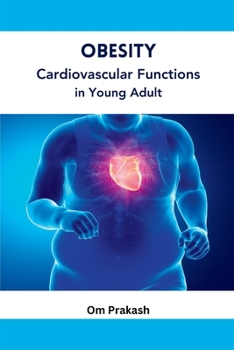Obesity Cardiovascular Functions in Young Adult
Obesity on cardiovascular changes in young adults is a growing concern in the field of health and medicine. This phenomenon highlights the intricate relationship between excessive body weight and the development of cardiovascular issues among individuals in their early adulthood.
Obesity, characterized by an excess accumulation of body fat, can exert detrimental effects on the cardiovascular system. Young adults who are obese often face an increased risk of developing conditions like hypertension, dyslipidemia, and insulin resistance. These factors collectively contribute to the early onset of atherosclerosis, where arteries become narrowed and hardened due to the buildup of fatty deposits.
Obesity-induced inflammation can trigger changes in the structure and function of the heart, potentially leading to left ventricular hypertrophy and decreased cardiac output. These alterations heighten the risk of heart failure and other cardiovascular complications later in life.
Understanding the relationship between obesity and cardiovascular changes in young adults is crucial for preventive strategies and interventions. Lifestyle modifications, including healthier dietary habits, regular physical activity, and weight management, play a pivotal role in mitigating these risks. Early awareness and education are essential to empower young adults to make informed choices regarding their health.
Obesity on cardiovascular changes in young adults underscores the need for proactive measures to address this issue. By promoting healthy lifestyles and raising awareness about the potential consequences of obesity, we can work towards safeguarding the cardiovascular well-being of the younger generation and reducing the burden of cardiovascular diseases in the long term.





